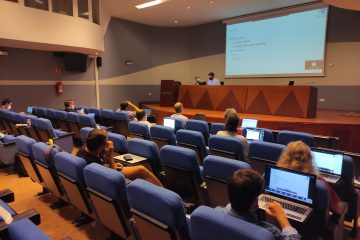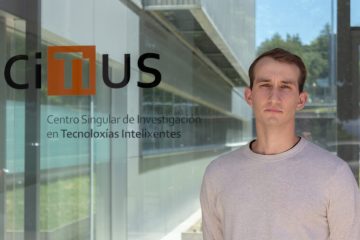The NL4XAI network along with NoBIAS network promote a key event to
discuss about the regulation of the Artificial Intelligence (AI), a hot topic
that will revolutionize the way in which modern societies interact with
technology. The event is sponsored by Microsoft.
“Artificial Intelligence is the most transformative technology ever developed by mankind, with an unparalleled impact on the social, economic, employment and privacy spheres”. Agree or not with the enthusiastic words of Senén Barro (scientific director of the Research Center On Intelligent
Technologies of the USC, CiTIUS), there is barely no doubt that technology is moving faster than ever nowadays, with Artificial intelligence at the forefront of this process. AI is reshaping the world and changing the lives of people and society, becoming not only ‘just another technology’, but more and more, a part of our daily lives: interacting with your digital assistant, asking to reproduce your favourite music, employing corrective text to help you to write an efficient email, or using navigation apps which reroute you taking into account traffic and construction, are not just mere daydreams that take place at the realm of fantasy.
Because of its potential and high-tech innovations, AI can bring a wide range of economic and societal benefits across the entire spectrum of social, economic, and environmental sectors. But, at the same time, and due to its faster growth and increasing applications and capabilities, AI entails several potential risks, including conflicts about privacy, inequality, opaque decision-making, fairness and bias or safety.
Aware of this, and in line with its concern to adequately regulate the development and use of AI, the European Commission has promoted several initiatives to set up the principles of a trustworthy and secure AI. In 2019 the high-level expert group on AI presented Ethics Guidelines for Trustworthy Artificial Intelligence. Two years later, on 21st April 2021, the European Commission published a regulatory framework to monitor AI, laying down harmonised rules about the topic, finally so-called Artificial Intelligence Act.
The EU Member States have also understood that they need to keep up with AI progress. Many of them have already adopted national AI strategies, while others are in the final drafting phase at present. Given that a
European-centred approach to AI is essential, the EU has put in place measures to strengthen coordination mechanisms, and to provide analysis and studies through the creation of AI Watch, an initiative of the European Commission to monitor and facilitate the implementation of the European Strategy for AI.
The right meeting at the right time
With the aim of discussing about all these crucial issues, the Singular Research Centre on Intelligent Technologies of the University of Santiago de Compostela, Spain (CiTIUS) will host next week a series of meetings with high-reputation experts, who will join along a three-day event entitled ‘European AI Regulation Week’. This workshop aims to raise awareness and stimulate the debate related to AI regulation, and will be structured in three thematic interactive panels: ‘Socio-economic impact of AI regulation’, ‘Building trust through Explainable AI complying with the European AI regulation’ and ‘A human-centric approach to non-biased AI in agreement with European values and regulation’.
The event is open to the public and will run in hybrid mode, with on-site and online attendants, focusing on a multi-stakeholder approach to bring together the private sector, academia, civil society, and governments representatives.
Although there is still time and it will necessarily have a long road ahead, the organizers of the event anticipate that if the European Strategy for AI is finally adopted as it has been conceived, the consequent law will be the most restrictive regulation of AI in the world. “Its impact will not only affect us in our personal lives, but will also affect us as consumers, employees, businesses and public administrations, and even research in the field”, says Barro. “The importance is such that we have a responsibility to be informed and even to be active in the debate and in the generation of proposals in this respect”, he concludes.
Register for free at: https://aia-week.pages.citius.usc.es/#index


